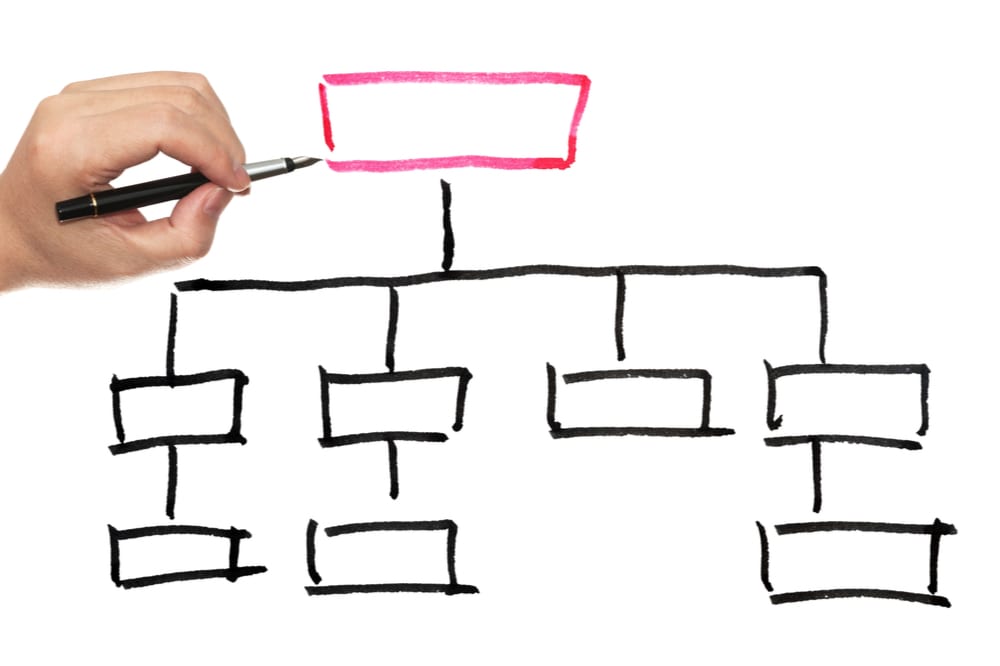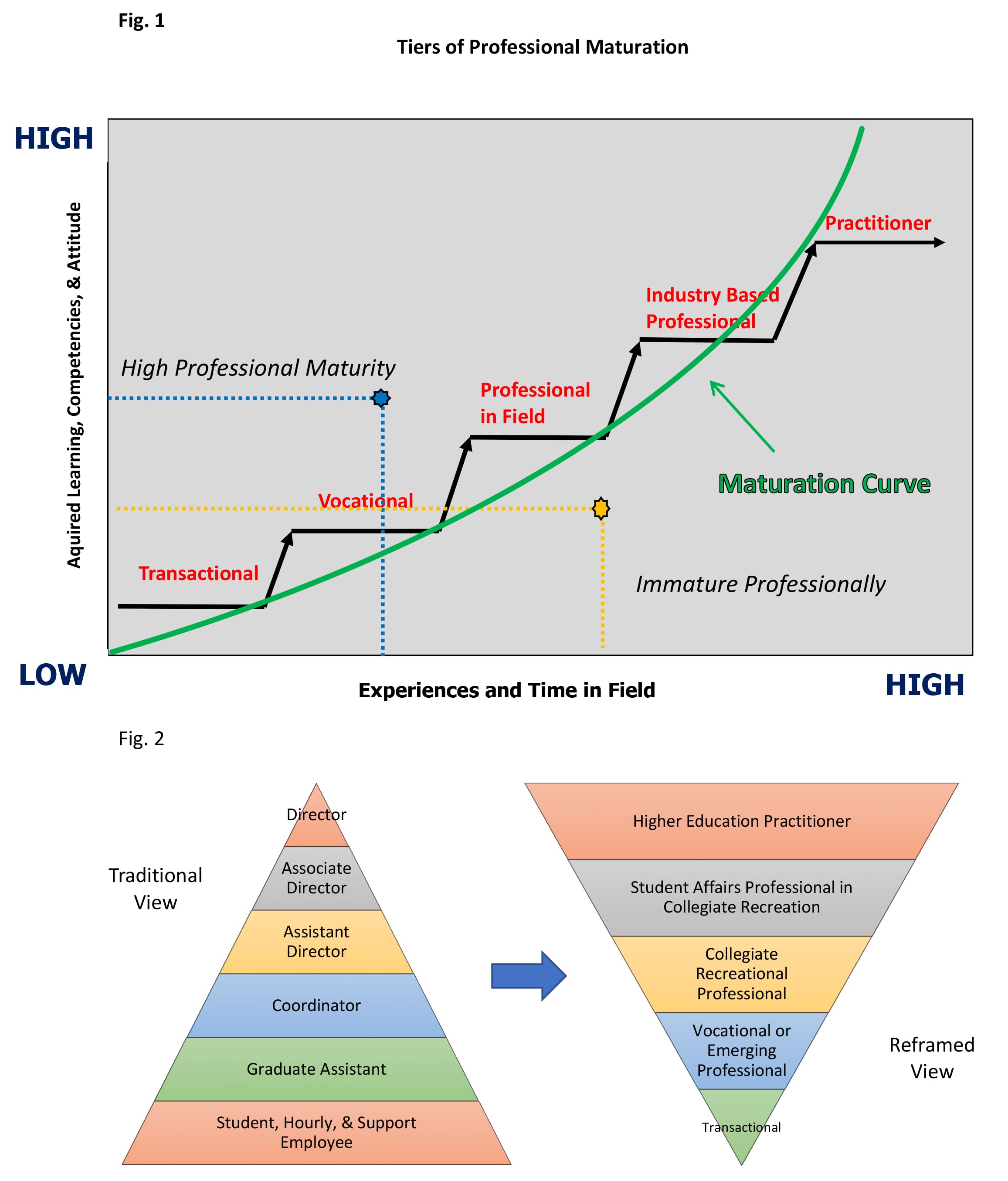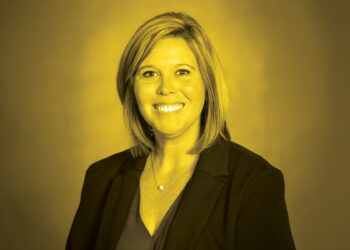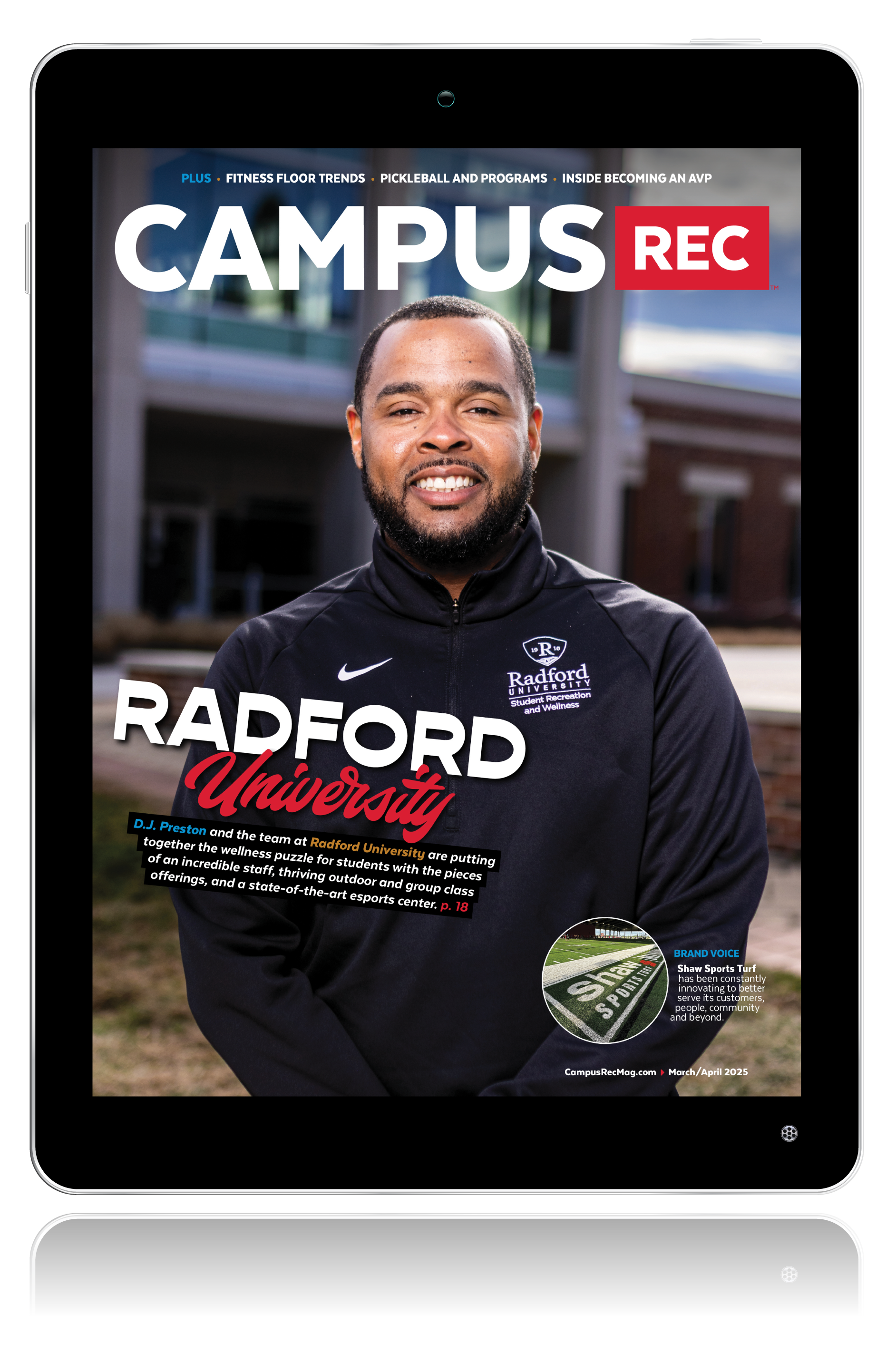
This is Part One of a three part series on professional and organizational maturity in the field of campus recreation by Grady Sheffield. It’s based on a presentation given by Sheffield and Bill Crocket at several regional and national NIRSA conferences. Read Part Two and Part Three.
What is this. . .
A few years ago, my colleague and mentor, Bill Crockett, and I engaged in a conversation about professional and organizational maturity. I was in my first few years as a director encountering the challenges of leading a department, and Bill was listening to me describe some of the positives and negatives of what I was experiencing. We began to discuss where I was as a professional and how the department I was leading compared to our peers. We shared outcomes of our personal journeys and experiences based on the results of our success and frustrations, evolving world views and observations based on over 20-plus years of networking and college interaction, and our own professional readings and research. That conversation led us to ask the question, “How should we be viewing professional and organizational maturity in campus recreation?”
We recognized the journey of professional and organizational maturity was like a dance; it may be beautiful and graceful or not so much. Ultimately, we realized we needed to distinguish between maturity (a state) and maturation (a process). Taking that into consideration, we realized professional and organizational maturation are similar, but also uniquely different as each revolves around aspects of behavior modeling, worldviews, roles, voice and attitude.
Who cares. . .
So, what? Or better yet why should we, as professionals, care about this? We believed it was important to look at both issues to help us think about our professional development and how it influences our personal capacity for growth and meaning. That led us to thinking about whether our departments or organizations are where we want to be or even should be, which then led us to thinking or asking ourselves about whether we wanted to transform or be transformational.
We had more conversations and eventually set out to present on the topic in an effort to challenge our peers to think about what it means to be professionally or organizationally mature. In doing so, we put trust into our audience that they would look for personal meaning in what we presented, they would decide for themselves on the relevancy and meaning of the topic, and they would think about how the subject matter helps them or their colleagues on their journeys as professionals in the field of campus recreation. Most importantly, we put trust in our audience that they must envision their future and an understanding that talking about this should be somewhat uncomfortable.
As a professional, I have come to realize I am currently going through another transition of my own professional maturation. Not only am I currently going through a change or transition, but so are other members on our team and so is our department. Part of my journey has led me back to this topic and has triggered me to revisit the information as a way to challenge my own thinking or process, our team, and our department. It has been a few years since Bill and I have presented on the topic, but the content is still relevant and just as thought provoking now as it was then.
What’s it all about. . .
Student learning is our most important institutional outcome but it must be achieved through on-going faculty and staff development (NASPA Leadership Exchange, 2013, p.14). Higher education is ever changing. Our roles as higher education practitioners and campus recreation professionals are constantly shifting, evolving, or moving in new and different directions. We must mature with it to stay ahead. The new normal is competency-based practitioners leading our profession. That couldn’t be more true given the emphasis or shift in strategic planning and realignment of departments related to well-being of our campus communities and a focus on the mental health of our students.
The process of professional and organizational evolution does not occur overnight. As Confucius said, “A journey of 1,000 miles begins with just a single step.” Perhaps the future of professional and organization maturation is best summed up by Yoda: “Difficult to see. Always in motion is the future.” Point being, the professional and organizational maturity process is not something that occurs because you have a title, change positions or acquire more space. The process occurs through transformative development.
Over the next few months, I plan to share with you some of the specific points from our presentation, what we learned from our own research and conversations, and our own ideas or philosophy on professional and organizational maturity. The intent will be for you to begin thinking about the maturation stages and processes involved in the professional maturity continuum for collegiate recreation professionals to possibly begin to align personal and professional goals to these various stages. The same objective will also center on the maturation stages and processes involved in a maturity model for departments so that departmental goals are possibly aligned to the various stages. Ultimately, the idea is to develop a model of reflective thinking about professional and organizational maturity to better serve ourselves, our teams and our departments.











